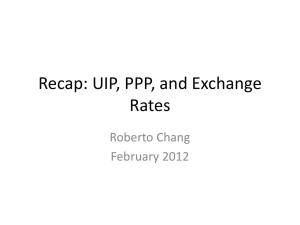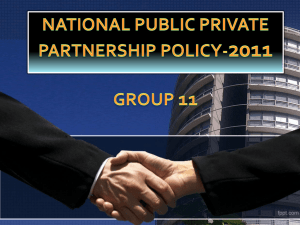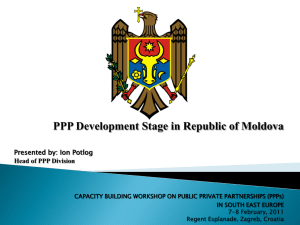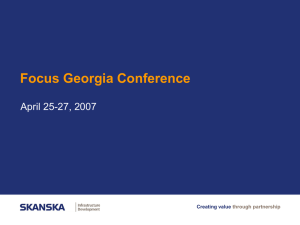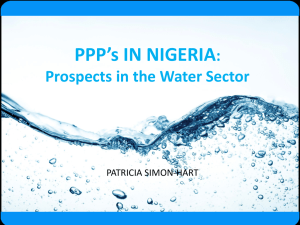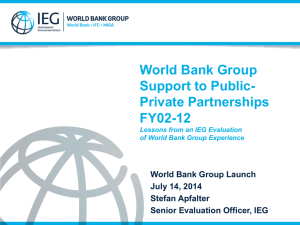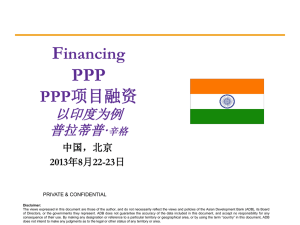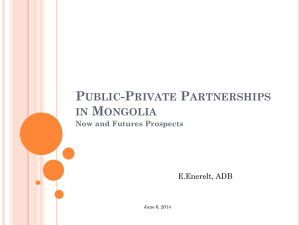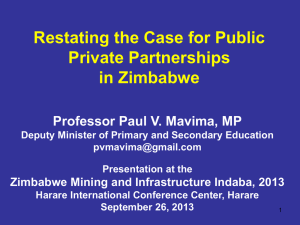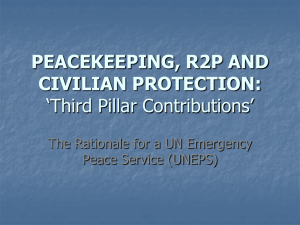Overview of the PPP legal framework in Moldova Tony Bonnici
advertisement
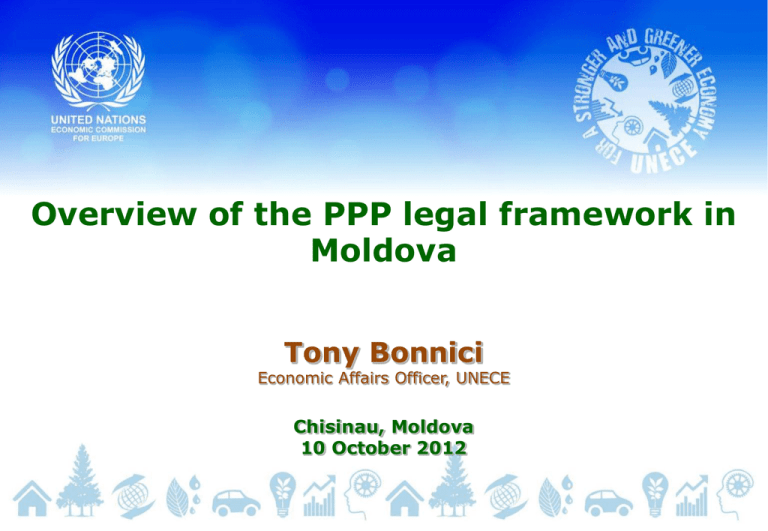
Overview of the PPP legal framework in Moldova Tony Bonnici Economic Affairs Officer, UNECE Chisinau, Moldova 10 October 2012 Overview of the PPP legal framework in Moldova • enacted its first PPP Law in 2008; • Provided a platform to depart from traditional concessions and focus on the improvement of various public projects or public services via PPPs; • framework law that gives full control to the competent public entity in conducting the tender process, negotiating the PPP contract and monitoring its implementation, and… Overview of the PPP legal framework in Moldova • …consents the public authorities to develop any type of project, not necessarily in those forms specified by the law, and... • …some projects have not fully matched any form of PPP described by the law; • a framework law is essentially a statute which is drafted in general terms and merely lays down a framework, where… Overview of the PPP legal framework in Moldova • …more detailed regulation is left to other, usually public bodies, the courts, and Parliament, to develop as ‘subsidiary legislation’ • situation in Moldova right now; • one of the main challenges going forward in the PPP development is the adoption and implementation of subsidiary legislation and administrative provisions; Practical Challenges A number of practical challenges, or potential barriers, where identified during the RA process: 1. the short duration of the tender process: the law allows for a fixed, 60 calendar days' period between publication of the request for proposals to the designation of the winning bidder. The law also grants an additional 30 day' period for contract negotiation with the winning bidder. This limited span of time could provide a formidable barrier to international bidders and possibly reduces the number of bidders that might lead to less value for money to the public authorities. Practical Challenges 2. the amount of compensation which the public authority would need to pay to the private partner in case of early termination of the PPP contract. The PPP law has no clear answer. This is a crucial issue that would need to be addressed at some point in secondary legislation. Practical Challenges 3.arbitration clauses - allowed in the PPP contract but are resisted by public authorities for two reasons: (i) the high perceived cost of international arbitration; and (ii) the fact that an arbitral procedure would not give immediate relief to public authorities (eg no access to interim measures otherwise afforded by domestic law. Having said that, in June 2011, Moldova ratified the Convention on the Settlement of Investment Disputes between States and Nationals of Other States, and this in itself should send a positive signal to international investors. Practical Challenges 4. Step-in rights are not statutorily available for lenders in Moldova, and in the case of default by the project company, the contracting authority is entitled to terminate the PPP project agreement and claim damages in court . However, nothing in the law precludes the parties to agree to the inclusion of step-in rights for lenders in the project agreement. Thank you for your attention! Tony Bonnici Economic Affairs Officer, UNECE Tony.Bonnici@unece.org
